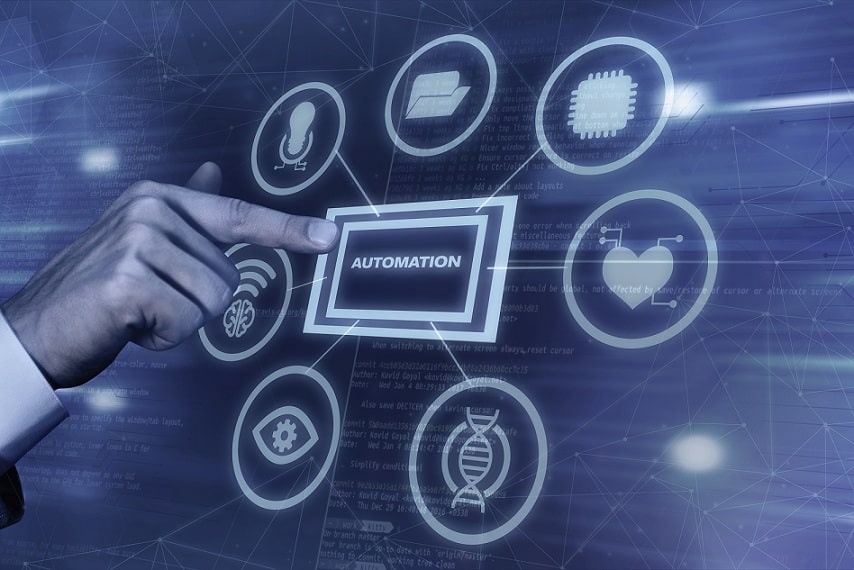In the rapidly changing world of software development, businesses are under constant pressure to release products faster, with fewer bugs and better user experiences. This is where the powerful combination of Artificial Intelligence (AI) and test automation is transforming how software is tested. Whether you’re just starting out in QA or looking to optimize your current automation strategy, this guide will walk you through how AI can make your testing process smarter, faster, and more efficient.
Table of Contents
What is Test Automation?
Before diving into AI, let’s understand what test automation is. Test automation involves using software tools to run tests on your applications automatically, rather than testing manually. Think of it like setting your washing machine to run while you do something else—it saves time, energy, and helps maintain consistency.
In a manual testing setup, testers write and execute each test case individually, which can become time-consuming and error-prone. Automation solves this by creating reusable scripts that perform the same checks every time the code changes. This not only saves time but also ensures that repetitive tasks don’t miss out on details due to human fatigue or oversight.
What is Artificial Intelligence in Simple Terms?
Artificial Intelligence (AI) refers to machines that are designed to mimic human decision-making and learning. It includes techniques like machine learning, natural language processing, and deep learning. When applied to testing, AI enables software tools to understand patterns, adapt to changes, and even predict potential issues—something traditional automation tools simply can’t do.
How AI is Enhancing Test Automation Efficiency
AI is not just an add-on to test automation; it’s a game-changer. Here’s how it takes traditional testing to the next level.
1. Intelligent Test Case Generation
Creating test cases manually takes time, and there’s always a chance of missing edge cases. AI can automatically analyze application requirements, user flows, and past testing data to generate test cases that cover a wide range of scenarios.
By understanding the behavior of an application, AI tools can suggest which areas need more focus, uncover hidden bugs, and even help in testing rarely used features. This leads to more robust and comprehensive testing right from the start.
2. Dynamic Test Scripting
As software evolves, UI elements change, new features are added, and old ones may be removed. In traditional automation, these changes often break test scripts, requiring constant maintenance.
AI-powered automation tools solve this problem through dynamic scripting. These tools use visual recognition and intelligent locators that can adjust to changes in the UI without needing manual updates. As a result, test scripts become “self-healing,” which significantly reduces maintenance overhead and ensures consistent test performance.
3. Smart Test Execution and Prioritization
Not every test case needs to be executed every time. AI helps prioritize which test cases should run based on factors such as recent code changes, historical defect trends, and user behavior data.
This means that high-risk or frequently failing areas of the application get tested first, while low-risk areas are deprioritized. This risk-based testing approach improves efficiency, saves time, and ensures that the most important parts of your application are always tested thoroughly.
4. Predictive Analytics and Early Defect Detection
One of the most powerful features of AI in testing is its ability to use historical data to predict future problems. AI algorithms analyze past test results, code changes, and defect logs to identify patterns that could indicate future failures.
For example, if a certain feature consistently causes bugs after updates, AI can highlight that feature for additional testing before problems arise. This proactive testing reduces the chance of releasing buggy software and improves overall product quality.
5. Visual Testing with AI
Many UI bugs are visual—elements are misaligned, buttons overlap, or text disappears. Traditional automation tools often overlook these issues. AI-based visual testing tools, like Applitools, can take screenshots and compare visual differences between builds.
These tools detect even the slightest change in design, helping teams catch issues that manual eyes or basic tools might miss. By integrating this kind of AI-based visual validation, companies ensure that both functionality and appearance meet quality standards.

Leading AI-Powered Test Automation Tools
The industry now offers a range of AI-enhanced tools to meet different testing needs. Let’s look at some popular ones:
1. Selenium with AI Enhancements
Selenium remains one of the most widely used frameworks for web testing. While it is not AI-based by default, it can be integrated with AI plugins or services to make it smarter. For instance, tools like TestCraft or Healenium add AI features to Selenium, enabling it to handle dynamic elements and flaky tests more effectively.
2. Testim
Testim uses machine learning to create stable tests that adapt to changes in the UI. Its Smart Locators identify UI elements dynamically, reducing false positives and broken test cases. Testim is particularly good for Agile environments where the UI changes frequently, as it helps maintain test accuracy with minimal manual updates.
3. Applitools
Applitools focuses on Visual AI Testing, allowing teams to detect visual regressions quickly. It compares UI snapshots across different screen sizes and browsers to ensure your application looks perfect everywhere. This is especially useful for teams developing cross-platform or responsive applications.
For more insights into AI tools transforming QA practices, you can check out this AI in software testing guide, which compares the latest AI-powered solutions for automation.
Benefits of Using AI in Test Automation
1. Increased Efficiency
AI tools handle repetitive tasks, data analysis, and script maintenance automatically. This frees up testers to focus on exploratory testing and complex use cases that require human judgment. The result is faster release cycles and higher quality output.
2. Better Accuracy and Fewer False Results
Since AI algorithms are capable of learning from vast datasets, they are less likely to overlook hidden bugs or report false positives/negatives. Over time, they become more accurate at identifying meaningful defects, giving QA teams more confidence in their results.
3. Enhanced Test Coverage
AI doesn’t just speed things up—it helps you do more. By automatically generating a wide variety of test scenarios, AI increases the depth and breadth of test coverage. This ensures that rarely tested parts of your application also get attention.
4. Faster Time-to-Market
When AI takes over the heavy lifting of testing, development and QA teams can move quickly without compromising quality. AI detects bugs early, prevents regressions, and accelerates test cycles—bringing products to market faster.
5. Cost Efficiency
Reducing manual effort means saving both time and money. Fewer testers are needed for routine checks, and less time is spent rewriting broken scripts. Over the long term, organizations benefit from a significant reduction in testing-related expenses.
Challenges of Using AI in Test Automation
As promising as AI is, there are still hurdles to clear.
1. Complexity of Integration
Not every QA team is ready to jump into AI. Setting up AI tools requires understanding machine learning, data preprocessing, and possibly retraining team members. Without proper guidance, the transition can become overwhelming.
2. Dependence on Quality Data
AI is only as smart as the data it learns from. If your past test results, logs, or user behavior data are incomplete or inaccurate, the AI will struggle to make good decisions. It’s critical to maintain clean, labeled, and relevant datasets.
3. Maintenance Still Required
AI tools promise reduced maintenance, but they are not completely hands-off. You still need to monitor performance, retrain models, and review predictions. Plus, frequent changes in the application can require updates to the AI algorithms themselves.
4. Ethical and Security Concerns
Using AI means handling large amounts of user data, especially in applications that track user behavior. Ensuring that your AI tools comply with data privacy laws and ethical guidelines is essential to maintain user trust.
5. Integration with Existing Pipelines
Introducing AI tools into established CI/CD pipelines isn’t always smooth. Compatibility issues, version mismatches, and unstable APIs can create friction. Thorough testing is needed to ensure AI integrates seamlessly with your current setup.
6. Limited Domain-Specific Understanding
While AI is great at pattern recognition, it sometimes lacks the business context or domain expertise needed to handle complex, industry-specific test cases. This can lead to false assumptions or missed critical issues unless guided by human input.
Final Thoughts
Artificial Intelligence is not just the future of test automation—it’s the present. By incorporating AI, companies can achieve smarter, faster, and more reliable testing processes. From dynamic script maintenance to predictive bug detection and intelligent test prioritization, AI is streamlining workflows and raising the bar for software quality.
However, as with any powerful tool, success depends on how wisely it is used. Teams must prepare, learn, and evolve their testing practices to fully benefit from AI.
If you’re involved in software development or testing, now is the time to explore how AI can improve your automation strategy. With the right tools and knowledge, you can not only improve efficiency but also ensure your applications deliver the best possible experience for your users.
Happy testing!

